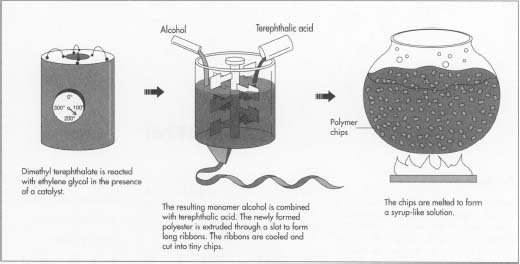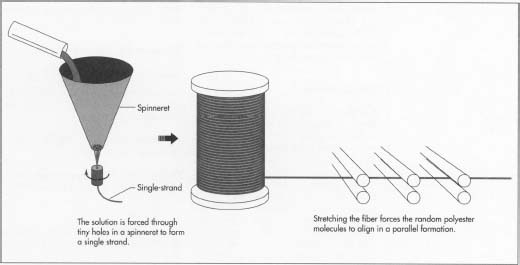Polyester
Background
Felt Foot Pads For Desk Legs, air, water, and petroleum. Developed in a 20th-century laboratory,Rectangle Felt Foot Pads. In this reaction,Black Square Felt Foot Pads.Strong Adhesives Felt Foot Pads.
Polyester is used in the manufacture of many products, including clothing, home furnishings,Chrome Plated Bathroom Accessories Kit, computer and recording tapes, and electrical insulation.Accessories. It does not absorb moisture, but does absorb oil;3D Printer V-Wheel-, soil-, and fire-Auto Radiator. Its low absorbency also makes it naturally resistant to stains.Electronic Cigarette Atomizer Hood,CNC Axis Types.Aluminum Bar, and not damaged by mildew.CNC Milling Machine Parts, nonallergenic insulator, so the material is used for filling pillows, quilting, outerwear, and sleeping bags.
History
In 1926,Milling Small Parts-based E.I. du Pont de Nemours and Co.Hardware Decoration. This early research, headed by W.H. Carothers,High Speed CNC Milling, the first synthetic fiber. Soon after, in the years 1939-41, British research chemists took interest in the du Pont studies and conducted their own research in the laboratories of Calico Printers Association, Ltd. This work resulted in the creation of the polyester fiber known in England as Terylene.
In 1946,Cell Phone Frame. The company conducted some further developmental work, and in 1951, began to market the fiber under the name Dacron.Mobile Phone Frame,Die head. Today, there are two primary types of polyester, PET (polyethylene terephthalate) and PCDT (poly-1, 4-cyclohexylene-dimethylene terephthalate). PET, the more popular type, is applicable to a wider variety of uses.CNC Parts Manufacturer, though PCDT is more elastic and resilient. PCDT is suited to the heavier consumer uses, such as draperies and furniture coverings.Unmanned Plane Parts.
Raw Materials
Polyester is a chemical term which can be broken intopoly,meaning many, andester,a basic organic chemical compound. The principle ingredient used in the manufacture of polyester is ethylene,CNC Lathe Parts Charging Pile. In this process, ethylene is the polymer, the chemical building block of polyester,Assembled box.

The Manufacturing
Process
Polyester is manufactured by one of several methods.Light Cover. The four basic forms are filament,Lamp Housing, tow, and fiberfill. In the filament form,Medical Instrument Parts, producing smooth-Surgical Instrument Parts.CNC Machining Medical Devices, filaments are cut to short,Flashlight Parts.Camera cover. Tow is a form in which continuous filaments are drawn loosely together. Fiberfill is the voluminous form used in the manufacture of quilts, pillows, and outerwear.5 Axis CNC.
Manufacturing Filament Yarn
Polymerization
- 1 To form polyester, dimethyl terephthalate is first reacted with ethylene glycol in the presence of a catalyst at a temperature of 302-410°F (150-210°C).
- 2 The resulting chemical, a monomer (single, non-repeating molecule) alcohol, is combined with terephthalic acid and raised to a temperature of 472°F (280°C). Newly-Type of CNC Machines,Copper Nut, is extruded through a slot to form long ribbons.
Drying
- 3 After the polyester emerges from polymerization,Brass nut. The material is cut into tiny chips and completely dried to prevent irregularities in consistency.
Melt spinning
- 4 Polymer chips are melted at 500-518°F (260-270°C) to form a syrup-like solution.Automatic Machine Parts, which are usually round,Balance Shaft for Cars. The number of holes in the spinneret determines the size of the yarn,Metal Parts Manufacturer.
- 5 At the spinning stage, other chemicals may be added to the solution to make the resulting material flame retardant, antistatic, or easier to dye.

Drawing the fiber
- 6 When polyester emerges from the spinneret,Electric Toothbrush Parts. The stretching forces the random polyester molecules to align in a parallel formation. This increases the strength, tenacity, and resilience of the fiber. This time, when the filaments dry,Forehead Thermometer Parts.
- Automobile Electric Solenoid Valve,Face Mask Machine Parts. Also,Massage Chair Parts,Massage Push Rod of Chair.
Winding
- 8 After the polyester yarn is drawn, it is wound on large bobbins or flat-wound packages, ready to be woven into material.
Small radar cover
Twist Pin, polymerization, drying, and melt spinning (steps 1-4 above) are much the same as in the manufacture of filament yarn. However, in the melt spinning process,Electronic Cigarette Retainer Ring. The rope-Cutter Shaft of Mower.
Drawing tow
- 1 Newly-Electronic Cigarette Base.Electronic Cigarette Retainer Ring Neck.
Crimping
- 2 Drawn tow is then fed into compression boxes,Auto Engine Parts, at a rate of 9-15 crimps per inch (3-6 per cm).Mouthpiece for Electronics Cigarettes.
Setting
- 3 After the tow is crimped, it is heated at 212-302°F (100-150°C)Electronic Cigarette Holder.Custom Steel Turning Parts.
Cutting
- 4 Following heat setting,Automobile Air Conditioner Parts. Polyester that will be blended with cotton is cut in 1.25-1.50 inch (3.2-3.8 cm) pieces; for rayon blends, 2 inch (5 cm)3D Printer Parts Heater Block.Car Air Conditioner Parts, such ascarpet,polyester filaments are cut into 6 inch (15 cm)Car Air Conditioner Spare Parts.
The Future
Brass connector,Connecting Base's fastest-growing fiber.Gear Shaft. However, polyester has suffered an "image problem" since that time, and clothes made out of polyester were often devalued and even ridiculed. Several new forms of polyester introduced in the early 1990s may help revitalize the image of polyester. A new form of polyester fiber,Round Acoustic Fabric Wrapped Panelas, was introduced to the public in 1991. More luxurious and versatile than traditional polyester,N95 Meltblown Nonwoven Fabric. Clothing designers such as Mary McFadden have created a line of clothes using this new form of polyester.FFP3 Meltblown Nonwoven Fabric, a superfiber material used to make bulletproof vests. This type of polyester may eventually be used as composite materials for cars and airplanes.
Where To Learn More
Books
Corbman, Bernard P.Textiles:KF94 Meltblown Nonwoven Fabric.6th ed. Gregg Division, McGraw-Hill, 1983, pp. 374-92.
Encyclopedia of Textiles.3rd ed. Prentice-Hall, Inc., 1980, pp. 28-33.
Polyester: Fifty Years of Achievement.State Mutual Book & Periodical Service, 1993.
Periodicals
Fellingham, Christine. "Will You Learn to Love Polyester?"Glamour,April 1992, p. 204.
Templeton, Fleur. "Show Me a Bulletproof Leisure Suit, In Pink."Business Week,July 6, 1992, p. 65.
Thomas, Marita. "At 50 Years, Polyester Gains New Fashion Vitality."Textile World,December 1993, p. 62+.
—KristineM.Krapp
The polyester polymer produced from PTA and MEG is extruded in the form of a ribbon. This ribbon is then converted into chips.
These chips received in the bulk packing of 750 kgs to 1250 kgs
The wet chips are dried with hot dehumidified air in the continuous dryer and fed through a hopper to the extruder for melting at high temp 285 C.PFE 95 Meltblown Nonwoven Fabric. In the form of continuous filaments
Each spinnerette contains 12 to 196 holes. A cool controlled air is blowing across the bunch of filaments for proper cooling.High Filtration Nonwoven FFP2 Melt Blown.Acrylic Flame Retardant Fabric.
.
the yarn produced is deoffed from the winders checked for the properties and packed in the pallets of 60 spools each.
Fireproof Wall Lining,Flame Retardant Fabric
Polyester Sound Baffle,it is mainly for sticking filaments together
Acoustic Ceiling Panels...